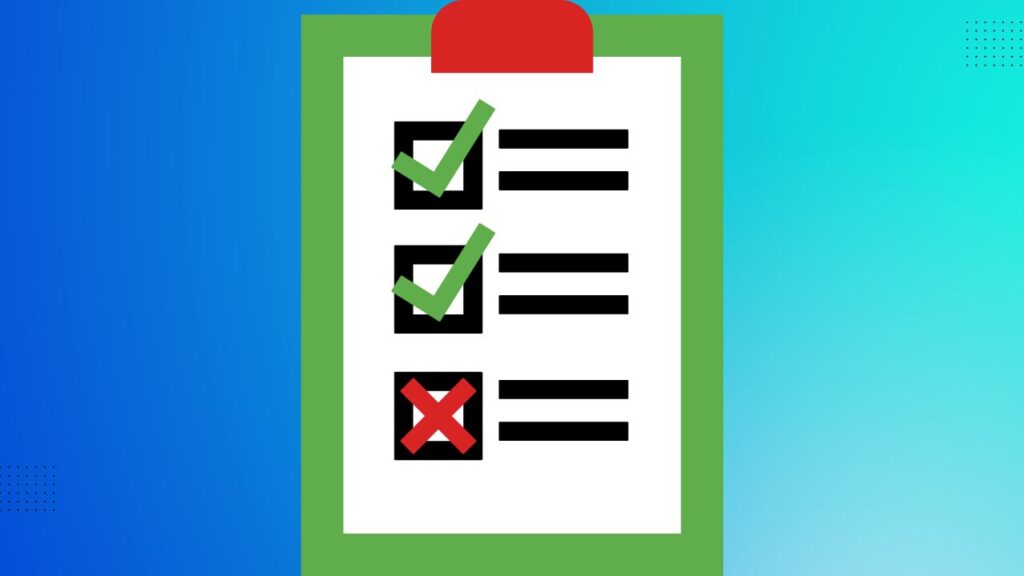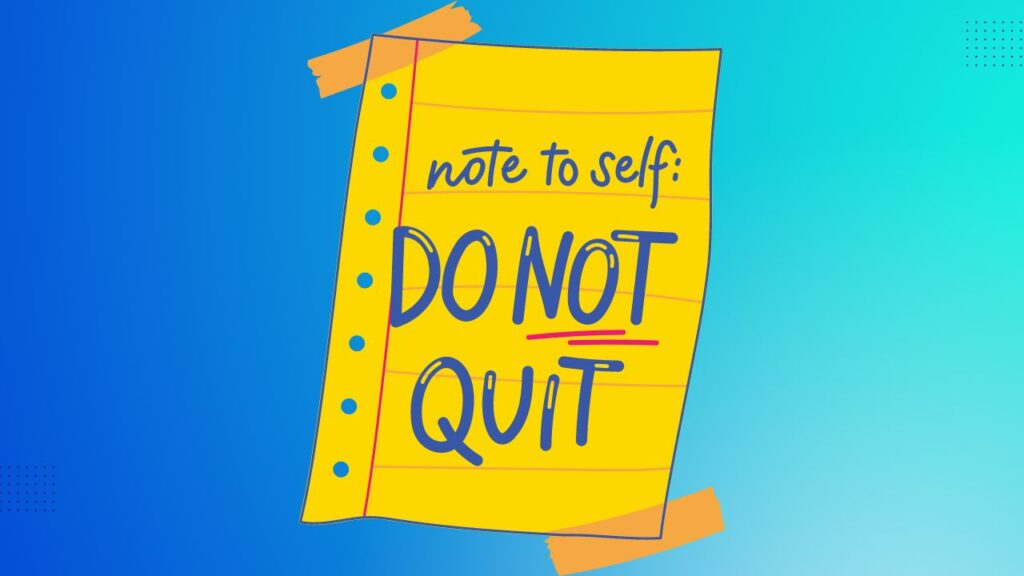We all know how difficult it can be to navigate personal finances, especially during a job loss.
Unfortunately, recent research indicates that the unemployment rate for millennials is higher than any other age group.
A survey conducted by the Economic Policy Institute revealed that 13.8% of millennials were unemployed in July of 2021, compared to the national average of 5.4%.
The truth is, no one is ever fully prepared for a job loss, and the financial strain it can put on your life can be overwhelming.
But don’t lose hope just yet! There are ways to manage your finances during these tough times and even come out stronger on the other side.
In this article, we will discuss strategies for overcoming financial struggles during a job loss.
We’ll cover topics like creating a budget, managing debt, building an emergency fund, and seeking financial assistance.
We understand that every individual’s financial situation is unique, but we aim to provide you with actionable tips that can help you take control of your finances during this challenging period.
So, if you’re ready to take the first step toward financial recovery, let’s dive in!
1. Understanding the Impact of Job Loss on Finances

Losing a job can have a significant impact on your finances, especially if you do not have a backup plan or emergency fund.
Here are some ways in which job loss can affect your finances:
1.1 How Job Loss Affects Finances
- Loss of income: Without a regular income, it can be challenging to pay bills, purchase groceries, or make rent/mortgage payments.
- Increased debt: In the absence of income, people may turn to credit cards, loans, or borrow money from friends and family to cover expenses, which can lead to increased debt.
- Limited savings: If you don’t have an emergency fund, you may need to use your savings to cover expenses during the job loss period, leaving you with little to no savings.
- Lower credit score: Late payments or missed payments on loans or credit cards can negatively impact your credit score.
1.2 Financial challenges millennials face during job loss
Millennials face unique financial challenges during job loss due to the following reasons:
- High debt: Many millennials carry student loans or credit card debt, which can make it difficult to save money or have an emergency fund.
- Lower income: According to a report by the Federal Reserve, millennials earn 20% less than their parents did at the same age, making it harder to save and invest.
- Housing costs: The rising cost of housing makes it challenging for millennials to save money or pay off debt.
- Job insecurity: Millennials often face more job insecurity and unemployment than previous generations due to the changing job market and economic uncertainty.
1.3 Identifying the areas where finances are impacted the most
Job loss can impact various areas of your finances.
Here are some areas that are likely to be affected:
- Housing: Rent/mortgage payments can be challenging to meet without a regular income, and missing payments can result in eviction or foreclosure.
- Food: Groceries and dining out can be expensive, and job loss can make it challenging to cover these costs.
- Transportation: Without a job, it may be difficult to pay for car payments or public transportation, which can lead to difficulty in finding new job opportunities.
- Debt payments: Monthly payments for credit cards, loans, or other debt obligations can be challenging to meet without regular income.
- Healthcare: Losing a job can also mean losing healthcare coverage, leaving you without access to medical services or prescription medication.
2. Assessing Your Financial Situation

2.1 Evaluating your current financial status
Before you can take steps to overcome financial struggles during job loss, it’s important to evaluate your current financial status.
Here are some questions to ask yourself:
- How much money do I have saved in my emergency fund?
- How much debt do I owe, and what are the monthly payments?
- What are my current monthly expenses, and how much income do I need to cover them?
- Do I have any investments or other sources of income?
2.2 Identifying Sources of Income
When you lose your job, it’s essential to identify any sources of income you may have.
Here are some potential sources of income:
- Unemployment benefits: If you qualify for unemployment benefits, you can receive weekly payments that can help cover some of your expenses.
- Severance pay: If you were laid off or terminated from your job, you may be entitled to severance pay. This can provide you with additional income during the job loss period.
- Side hustles: Consider taking on a side hustle or freelance work to earn additional income while you search for a new job.
2.3 Calculating Expenses and debt obligations
To assess your financial situation accurately, you need to calculate your monthly expenses and debt obligations.
Here are some steps to follow:
- Create a budget: Use a budgeting tool or app to track your expenses and create a monthly budget.
- List your debts: Make a list of all your debts, including the type of debt, the balance, and the minimum monthly payment.
- Prioritize debt payments: Determine which debts have the highest interest rates and prioritize paying those off first.
2.4 Understanding your credit score
Your credit score is an essential factor in your financial health, and it can be impacted by job loss.
Late or missed payments on loans or credit cards can negatively impact your credit score.
Here’s what you need to know about credit scores:
- Credit score range: Credit scores range from 300 to 850, and a score of 700 or above is considered good.
- Factors that affect credit score: Payment history, credit utilization, length of credit history, and types of credit all impact your credit score.
- Checking your credit score: You can check your credit score for free through various websites or your credit card issuer.
By assessing your financial situation, identifying sources of income, calculating your expenses and debt obligations, and understanding your credit score, you can gain a clearer picture of your finances and take steps to overcome financial struggles during a job loss.
3. Creating a Budget

Creating a budget is crucial during job loss because it helps you track your spending, prioritize expenses, and identify areas where you can cut back.
By having a budget in place, you can make informed decisions about your finances and stay on track while you search for a new job.
3.1 Steps to Create a Budget
Here are the steps to follow when creating a budget:
- List your income: Make a list of all your sources of income, including any unemployment benefits, severance pay, or side hustle income.
- Calculate your expenses: Use your monthly bills and bank statements to calculate your expenses. Make sure to include essential expenses like rent, utilities, and food, as well as discretionary expenses like entertainment and dining out.
- Set priorities: Once you have a clear picture of your income and expenses, determine which expenses are essential and which are discretionary. This will help you prioritize your spending and make informed decisions about where to cut back.
- Track your spending: Use a budgeting tool or app to track your spending and ensure that you stay within your budget.
Table: Sample Budget Worksheet
| Category | Monthly Cost |
| Income | $2,500 |
| Essential Expenses | $1,500 |
| Rent | $1,000 |
| Utilities | $100 |
| Food | $400 |
| Discretionary Expenses | $600 |
| Entertainment | $100 |
| Dining Out | $200 |
| Clothing | $150 |
| Miscellaneous | $150 |
| Savings | $400 |
3.2 Tips on cutting expenses
When you’re facing job loss, cutting expenses is essential to stay afloat financially.
Here are some tips on how to cut expenses:
- Cut discretionary expenses: Look for areas where you can cut back on discretionary expenses, such as entertainment or dining out.
- Negotiate bills: Consider negotiating with your service providers, such as your internet or cable company, to reduce your monthly bills.
- Cancel subscriptions: Cancel any subscriptions you no longer need or use.
- Buy used: Consider buying used items, such as clothes or furniture, instead of new items.
3.3 Ways to generate additional income
Generating additional income can help you make ends meet during a job loss.
Here are some ways to generate additional income:
- Side hustles: Consider taking on a side hustle or freelance work to earn additional income while you search for a new job.
- Sell unwanted items: Sell any unwanted items you have, such as clothes or electronics, on platforms like eBay or Facebook Marketplace.
- Rent out a room: If you have a spare room in your home, consider renting it out on Airbnb or another home-sharing platform.
By creating a budget, cutting expenses, and generating additional income, you can take steps to overcome financial struggles during job loss and stay on track financially.
4. Managing Debt During Job Loss

Dealing with debt can be stressful and overwhelming, especially during a job loss.
But it’s important to manage your debt to avoid further financial troubles.
Here are some tips to help you manage your debt during job loss:
4.1 Understanding the Types of Debt and their impact on Finances
Different types of debt have different interest rates and repayment terms.
Credit card debt usually has the highest interest rate, while student loans and mortgages usually have lower interest rates.
It’s important to understand how much you owe and the repayment terms of each debt to create a debt management plan.
4.2 Options for managing debt during job loss
There are several options for managing debt during a job loss.
One option is to contact your creditors and explain your situation. They may be willing to offer a temporary forbearance or repayment plan.
Another option is to consider debt consolidation, where you combine multiple debts into one with a lower interest rate.
However, be cautious of debt consolidation scams and make sure to research reputable companies.
4.3 Prioritizing debt payments
It’s important to prioritize which debts to pay off first during a job loss.
Start by paying off debts with the highest interest rates, such as credit card debt.
If you have a mortgage or car loan, try to continue making payments to avoid foreclosure or repossession.
It may be tempting to skip payments on your student loans, but be aware that they will continue to accrue interest and could negatively impact your credit score.
Overall, managing debt during job loss requires careful planning and communication with creditors.
Remember that it’s okay to ask for help and seek advice from financial professionals.
With a solid debt management plan, you can overcome your financial struggles and come out stronger on the other side.
5. Building an Emergency Fund

Having an emergency fund is crucial for everyone, but especially for those who are experiencing job loss or economic downturns.
It provides a safety net for unexpected expenses or a sudden drop in income.
Without an emergency fund, individuals may have to rely on credit cards or other forms of debt to cover these expenses, which can lead to further financial struggles down the line.
5.1 Ways to Build an emergency fund
Building an emergency fund may seem overwhelming, but it’s important to start somewhere.
Here are some steps to take:
- Set a savings goal: Determine how much you need to save to cover at least three to six months of expenses. This will be your savings goal.
- Cut expenses: Look for areas in your budget where you can cut back on expenses. For example, consider canceling subscriptions or memberships you don’t use or reducing your entertainment spending.
- Increase income: Look for ways to generate additional income, such as picking up a side gig or selling unused items.
- Automate savings: Set up automatic transfers from your checking account to your emergency fund each month. This ensures you’re consistently putting money towards your savings goal.
5.2 Tips on Maintaining an emergency fund
Once you’ve built up your emergency fund, it’s important to maintain it.
Here are some tips to help:
- Keep it separate: Keep your emergency fund in a separate savings account from your other savings. This will prevent you from accidentally dipping into it for non-emergency expenses.
- Replenish it: If you do have to use your emergency fund, make a plan to replenish it as soon as possible.
- Re-evaluate your savings goal: As your financial situation changes, your savings goal may need to be adjusted. Re-evaluate your expenses and income at least once a year to ensure you’re still on track.
Having an emergency fund provides peace of mind during uncertain times.
By taking steps to build and maintain one, you can be better prepared to overcome financial struggles during a job loss or other economic challenges.
6. Seeking Financial Assistance

During a job loss, seeking financial assistance can provide much-needed relief and help individuals overcome financial struggles.
Here are some options for financial assistance:
6.1 Government Programs and Resources
The government provides a variety of programs and resources to assist individuals who have lost their jobs.
Some of these programs include:
- Unemployment Benefits: These benefits provide financial support to individuals who have lost their job through no fault of their own. Eligibility and benefit amounts vary depending on the state.
- SNAP (Supplemental Nutrition Assistance Program): Formerly known as food stamps, this program assists low-income individuals and families to purchase food.
- Medicaid: This program provides health insurance to individuals and families with low income.
- Housing Assistance: The government provides various housing assistance programs, including rental assistance and mortgage assistance.
6.2 Charitable Organizations and Assistance Programs
Many charitable organizations and assistance programs can provide financial assistance during a job loss.
Some examples include:
- The Salvation Army: This organization provides emergency financial assistance, including rent and utility assistance.
- Catholic Charities: This organization provides assistance with basic needs, such as food and shelter, as well as financial assistance for utilities and rent.
- The United Way: This organization provides a variety of assistance programs, including emergency financial assistance, job training, and education assistance.
6.3 Loan Options for Those with Low or No Income
For individuals who need additional financial assistance, there are loan options available, even for those with low or no income.
Some of these options include:
- Payday Loans: These are short-term loans that typically have high-interest rates and fees.
- Title Loans: These are loans that are secured by the borrower’s vehicle. They also have high-interest rates and fees.
- Personal Loans: Some lenders offer personal loans specifically for individuals with low income or bad credit. These loans may have higher interest rates than traditional personal loans.
It’s important to carefully consider the terms and fees associated with any loan before accepting it.
If possible, explore other options for financial assistance before taking out a loan.
Overall, seeking financial assistance can be a helpful way to overcome financial struggles during a job loss.
Be sure to research all available options and carefully consider the terms and fees before accepting any assistance.
7. Staying Motivated and Positive

Job loss and financial struggles can be overwhelming, and it’s natural to experience stress and anxiety during this time.
However, it’s important to stay motivated and positive to overcome these challenges and come out stronger on the other side.
In this section, we’ll discuss some strategies for coping with the stress and anxiety of job loss, the role of mindset in financial recovery, and ways to stay motivated during financial hardship.
7.1 Coping with the stress and anxiety of job loss
- Recognize and acknowledge your emotions: It’s important to allow yourself to feel your emotions and not suppress them. Recognize that job loss is a major life event and it’s natural to feel anxious, stressed, and even depressed.
- Seek support: Talk to family and friends about what you’re going through. Consider joining support groups or seeking professional help if necessary.
- Take care of yourself: Prioritize self-care, including exercise, healthy eating, and adequate sleep. Engage in activities that bring you joy and help you relax, such as meditation, yoga, or reading.
7.2 The Role of Mindset in financial recovery
- Believe in yourself: It’s important to believe that you can overcome your financial struggles and that this situation is only temporary.
- Focus on the positive: While it may be difficult to see at first, there are often some positives that can come out of a difficult situation. Try to focus on these positives and use them as motivation to move forward.
- Set achievable goals: Break down your financial recovery into small, achievable goals. Celebrate each small success along the way.
7.3 Strategies for staying motivated during financial hardship
- Create a vision board: A vision board is a visual representation of your goals and dreams. Create a board with images and words that represent what you want to achieve financially.
- Surround yourself with positivity: Spend time with people who are supportive and positive. Avoid people who bring you down or make you feel bad about your situation.
- Celebrate small successes: As mentioned earlier, celebrate each small success along the way. This will help keep you motivated and focused on your ultimate goal.
By implementing these strategies, you can stay motivated and positive during your financial recovery journey.
Remember that it’s okay to ask for help and that with perseverance and a positive mindset, you can overcome your financial struggles.
Bottom Line…
In conclusion, job loss can be a daunting experience, but it doesn’t have to be a financial disaster.
By understanding the impact of job loss on finances, assessing your financial situation, creating a budget, managing debt, building an emergency fund, seeking financial assistance, and staying motivated, you can overcome financial struggles during a job loss.
It’s important to remember that you’re not alone in this experience.
In 2020, the unemployment rate in the United States reached a high of 14.8%, affecting millions of people.
However, with the right tools and resources, you can take control of your finances and come out stronger on the other side.
It’s never too early to start preparing for a potential job loss, and having a solid financial plan in place can give you peace of mind and a sense of security.
So, take action now and start implementing these strategies to overcome financial struggles during a job loss.
Remember, this is a temporary setback and you have the power to bounce back.
Stay positive, stay motivated, and keep pushing forward toward your financial goals.

1 thought on “Overcoming Financial Struggles During Job Loss”